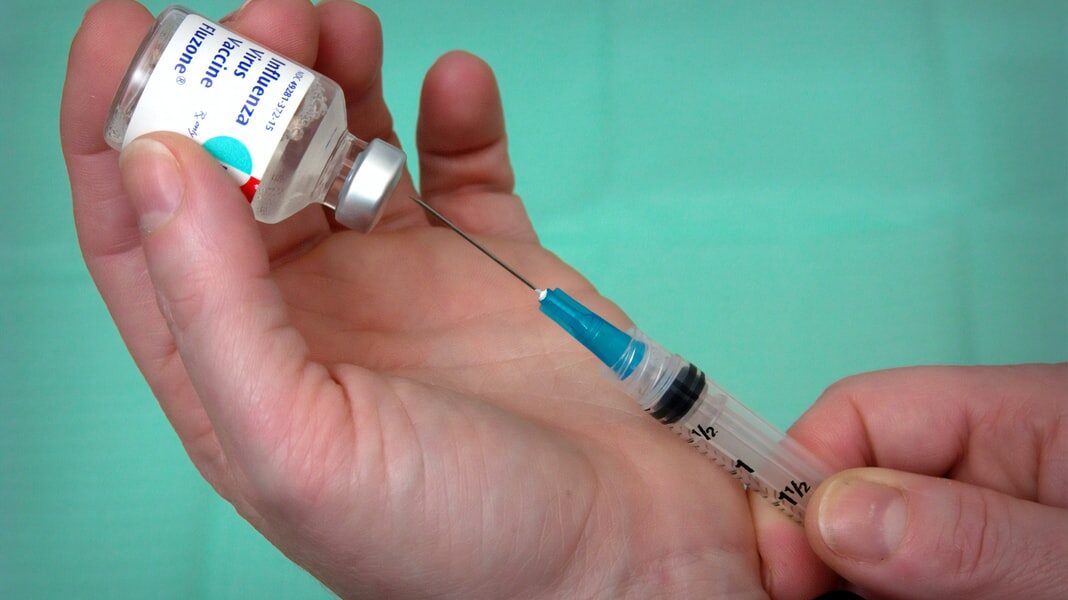This week on the Health Report, we’ll hear from Kelly Miller, the executive director of the Division of Indian work in St. Paul, about their work as a Covid-19 Community Coordinator.
But first. Children ages 5 to 11 years old can now get the updated COVID-19 booster shot, known as the bi-valent vaccine, meaning that it draws immunity from the currently circulating variants in addition to the original COVID strain. The Minnesota Department of Health (MDH) says parents should get their children boosted at least two months after they’ve completed their primary series of the COVID vaccine. This new booster helps protect against the covid variants currently circulating, the BA.4 and BA.5 variants. Which, according to the CDC, accounted for about 82 percent of reported COVID cases in the US during the second week of October.
MDH is also encouraging parents with children that have not completed their primary series to schedule their next dose so they can become eligible for the bivalent booster. The primary series is important to build up the base protection against the virus.
Booster approval for the younger age group now means that the bivalent booster is available for people 5 years of age and older. Native community members can check with their local IHS clinic, the Native American Community Clinic, The Indian Health Board, the Division of Indian work, and the American Indian Community Housing Organization to find out how to schedule an appointment or visit a vaccination event. All Minnesotans can check with their regular healthcare provider, local pharmacy, or visit a state-run vaccination site. Those sites include Moorhead, Rochester, Mall of America, and St Paul Midway.
Getting vaccinated against COVID-19 is one of the most important steps you can take to protect yourself and your community. For more information about the booster and where to find one visit our resource page: MinnesotaNativeNews.org/Health
—
It’s been two and half years since the pandemic began and through that time, Kelly Miller and the Division of Indian Work have been working tirelessly to continue meeting community needs and to help community members navigate the pandemic as a Covid-19 Community Coordinator. In a recent interview on our program Covid-19 Community Conversations, Kelly explained what DIW’s work has been like through the pandemic.
“Our primary focus is usually our food shelf, youth programs, and more crisis-based services; providing those most basic needs. When COVID first happened it was a huge need for food. Our families didn’t have the two-week fund to stock up on two weeks of food, because there were so many unknowns. So our first response was making sure our families had the items they need to stay home. Then we were asked to open a COVID resource hotline, and it kind of just fit in with the work we’re doing to provide this information. ,” Kelly said.
As Covid Community coordinators, DIW ran a hotline for community members to call in and get connected to resources. They answered calls from across the state and even nationally. DIW also began new collaborations with other community organizations to help give vaccines and other resources. Kelly says that those collaborations are one of the positive things to come about because of the pandemic.
“The strength we have as a community, I think, to make sure we take care of each other. So, when we heard a family is sick and then they have to quarantine; okay well what can we do to help them? Can we bring food? Can we bring them medicines? Can we bring cleaning supplies, or give them masks? Can we be there for them to help them make sure what they need for school, or just to keep the kids busy?” Kelly said.
Kelly says that as we continue through the pandemic that it’s important to continue to take precautions and to reach out if you need of help.
“First I’m going to encourage families to continue their precautions on vaccines, hand washing, masks and stay home if you’re sick. Also, to lean on one another; have your support group and lean on them when you need it,” she said.
Hear more from Kelly Miller in our October edition of the Community Conversation.
Subscribe to Minnesota Native News in your favorite podcast app
- The Sugarbush Tradition Continues in Minnesota’s Urban Areas, and Khayman Goodsky’s New FilmANCHOR Marie Rock: This is Minnesota Native News, I’m Marie Rock. This week, we hear about Minnesotans continuing the old tradition of sugarbush in urban areas. Plus, a look at …
- Sherburne National Wildlife Refuge Faces Staffing Cuts; Headlines Affecting Indigenous MinnesotansANCHOR Marie Rock: This is Minnesota Native News, I’m Marie Rock. This week, we hear about the impact of recent federal staffing cuts on Zimmerman, Minnesota’s Sherburne National Wildlife Refuge. …


 Sculpture Unveiled in Grand Rapids for Indigenous Peoples’ Day
Sculpture Unveiled in Grand Rapids for Indigenous Peoples’ Day